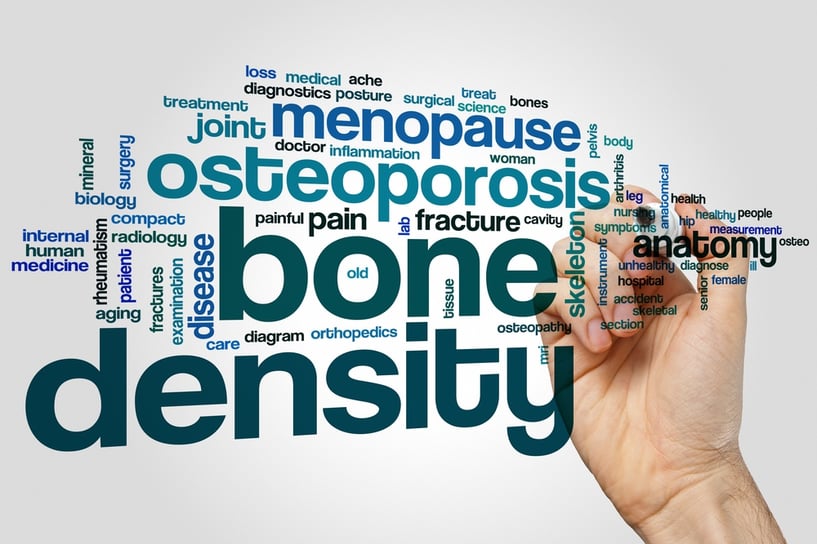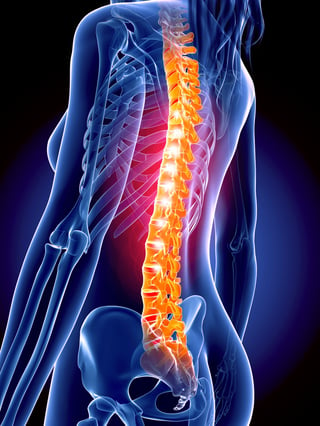Search for topics or resources
Enter your search below and hit enter or click the search icon.
August 4th, 2016 | 4 min. read


As women approach middle age, they may encounter unique musculoskeletal problems that affect them more frequently than men. Learn about 5 of the most common orthopedic surgeries sought out by women over 40.
Below are some of the most common surgeries women seek out as they approach middle age and beyond.
Joint replacements are not only among the most common orthopedic surgeries for women over 40 — they're also one of the Top 5 most common surgical procedures performed in the United States overall.
Every year, over one million Americans undergo replacements of the knee or hip joints, usually due to joint damage and pain caused by osteoarthritis.
Because OA affects women at higher rates than men, women make up an estimated 60% of all of these surgeries (about 360,000 total knee replacements and 180,000 hip replacements annually).

Due in part to hormonal changes, women over 40 are also more likely to experience weight gain and complications from obesity, which can increase stress on the joints.
Thanks to computer-assisted procedures and arthroscopic techniques, today's joint replacement surgeries are less invasive than in years past — making them safer and more desirable.
More and more patients, both women and men, are opting to get these surgeries earlier so they can stay physically active for longer.
Like joint replacement surgery, broken bone repair is among the Top 5 most common surgeries performed in the United States.
People of both sexes and all ages sustain fractures every year.
However, women over 40 are particularly prone to fracture due to their higher rates of osteoporosis. Lower bone density, combined with a slower rate of bone re-growth, means women become more vulnerable to injury as they get older.

Common causes of fracture in women over 40 include:
Women with osteoporosis are particularly prone to wrist fractures and spine problems (for example, losing height or developing a hump) due to fractured or crumbling vertebrae.
Fracture care management approaches may include casting, splinting, the use of surgical pins and rods, and non-invasive therapies like bone growth stimulators.
Due to their greater likelihood of developing arthritis (as compared to men), many women over 40 may experience a breakdown of the cartilage in the shoulder joint.
This degeneration can lead to pain, tenderness, and stiffness in the shoulder. In the later stages of arthritis damage, range of motion can be severely affected to the point where raising and lowering the arm becomes difficult.
A total shoulder replacement (total shoulder arthroplasty) seeks to eliminate pain and restore mobility and function to the joint.
Similar to hip and knee procedures, a shoulder joint arthroplasty replaces the damaged parts of the joint with other materials: namely, a metal "ball" and a plastic "socket." After recovery, the joint should glide easily without the pain, grinding, catching, or clicking caused by OA.
Osteoporosis is one of the leading causes of spine problems for women as they age. Loss of bone density can lead to spinal compression fractures that may require specialized injection of bone cement to strengthen the spine.

Slipped discs, disc degeneration, postural issues (like "shrinking" and developing a hump) may also occur as women get older and experience the cumulative effects of osteoporosis and arthritis.
For example, fusing two or more vertebrae may be necessary to eliminate back pain from arthritis.
Common spine surgeries in women over 40 include:
Although there are no guarantees one can avoid back pain or spine damage, research supports the value of remaining active and engaging in weight-bearing activities like weight-lifting/resistance training and exercise walking.
Avoiding obesity and a sedentary lifestyle can go a long way in helping to slow bone loss and minimize future back problems and pain.
According to studies, women are anywhere from two to 10 times more likely than men to injure their anterior cruciate ligaments, or ACLs. These ligaments, located in the center of the knee joint, control the extension of the knee and the forward motion of the shin.
Women are thought to sustain this injury more often than men because of biomechanics. The angle of the hip to the knee differs from men; this angle can affect stability when landing or pivoting.
Women over 40 are even more vulnerable than younger women because the collagen in tendons and ligaments breaks down with age. Tiny tears are more likely. These can grow into bigger tears that can cause pain, stiffness, instability, and sometimes full ruptures. Hormonal changes and medications may also contribute to a higher frequency of tendon and ligament ruptures.
Because women injure their ACL more often than men, they're more likely to need arthroscopic surgery to repair this damaged or ruptured knee ligament.
Other common surgeries in women over 40 include the following.
If you've tried other approaches and they haven't helped, you may find a surgical procedure is a more effective option for managing your pain or mobility issues.
Many orthopedic procedures are now minimally invasive — which can mean less risk and a faster rehabilitation.
If you live in south Texas, call Coastal Orthopedics. Located in Corpus Christi, our specialists can assess your condition and discuss your options. Telephone: 361.994.1166.
Dr. Williams has been practicing orthopedic surgery in Corpus Christi since 1998. After graduating from Texas Tech hereceived his medical degree from the University of Texas at San Antonio. At the prestigious Campbell Clinic located at the University of Tennessee, Dr. Williams completed not only an Orthopedic Surgery Residency, but an additional year of Fellowship Training in Spine Surgery. Dr. Williams is dedicated to creating an excellent patient experience in the office or in the surgery suite.
Topics: